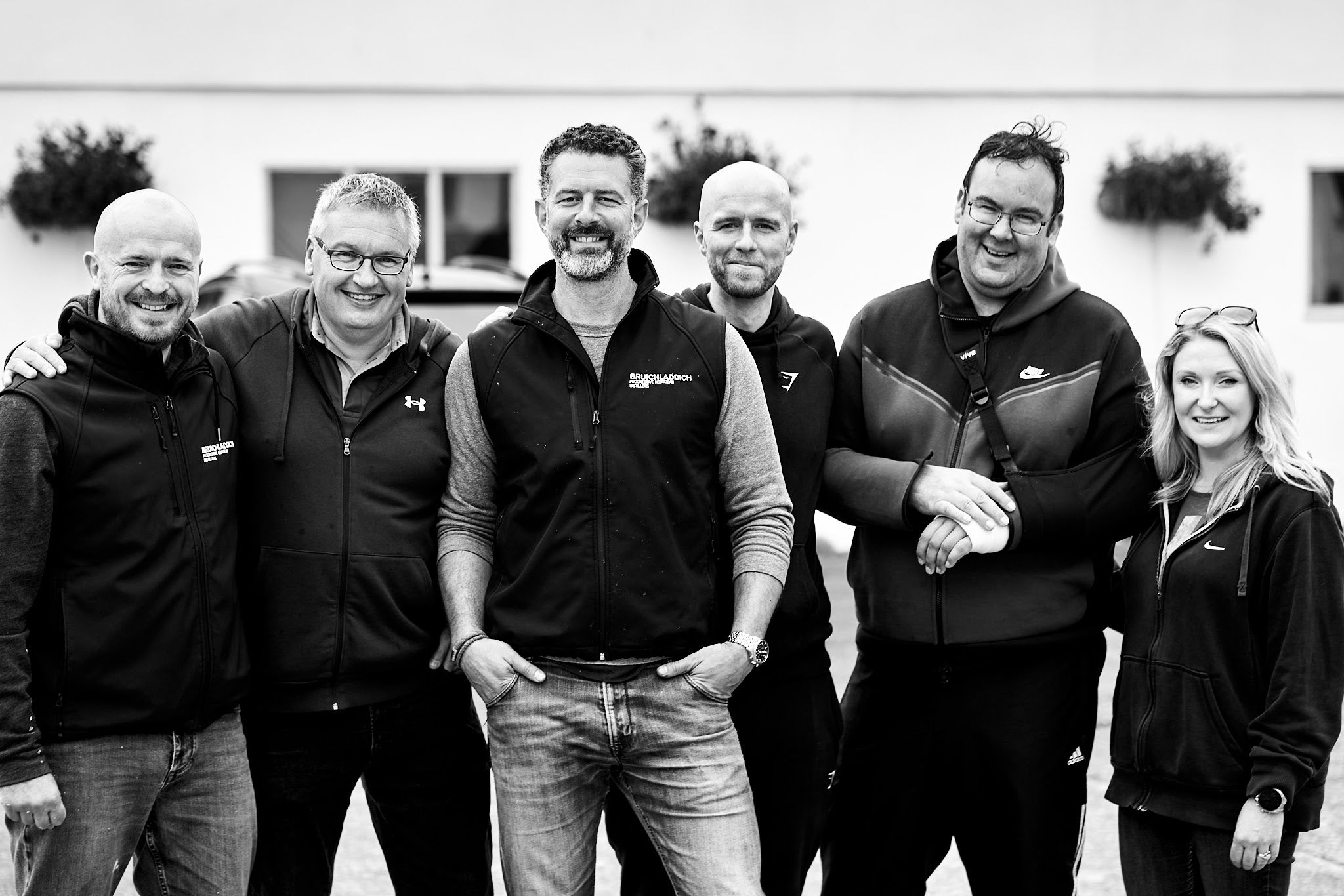Abi’s work as a Brand Ambassador has her traveling around the globe to host events and trainings for Bruichladdich Distillery. She's primarily in Asia-Pacific but also spends a fair amount of time in the UK and Europe. A typical trip for Abi starts with a 6:30am alarm. A few planes, trains, and automobiles later and she’s arrived at her destination. Her afternoons are occupied with tasting events for trade teams, followed by evenings of consumer events, such as a bar takeover or whisky tasting. Then it’s rinse and repeat for three to four weeks before returning to Glasgow for local events – and some respite. It’s an intense schedule, and not well-suited for the introvert or anyone with less than superhuman energy levels.
Abi’s entry into spirits was an accidental one. She’d been working at an underground electronic music club in Aberdeen doing PR and writing their fanzine, when the owners bought a cocktail bar and needed someone to run it.
“I hope you’re not looking at me,” Abi had told them, “because all I drink is literally pints of Strongbow cider with blackcurrant.”
She knew nothing about spirits and had no interest in the bar or cocktail scene – her passions lay in music. Somehow, they convinced her and shortly after, Abi was researching spirits, creating cocktails, and training staff.
“They were also club people, so they didn’t really know spirits either. So, every week, we would take a spirit, learn the classics, make the classics...and then just build from that.”
Eventually, she started managing cocktail bars in Glasgow, until she landed the job with Bruichladdich and moved to London. While working in London, Abi picked up work on the weekends at the famous White Lyan cocktail bar in London.
“They were making drinks like they’d never been made before. Everything was pre-batched, which is normal now, but it wasn’t like that then. There was no fresh fruit, no ice, nothing shaken. Everyone was losing their minds, like ‘You can’t have cocktails without ice!’. It was unbelievably creative.” She tells me about the best cocktail she’s ever had: “Salad” (now available from The Seed Library), that has lettuce, herbs, gin, and red apple soda and tastes just like salad. And another where they used dissolved chicken bones to give the cocktail minerality.
Moving from the cutting edge of the London cocktail scene to the international malts scene gives Abi a particular insight into how whisky is consumed and enjoyed in different cultures. One difference Abi finds is the emphasis on pairing with food in certain countries.
“The UK loves food pairings as well, but in a different way than say, China. In China, every night I did a whisky dinner.”
And then there are the themes of discussion. What do people want to talk about as they sip their drams (slowly in the West, and significantly faster in China, Abi notes)?
“I'd say in the UK, people love hearing stories about the distillery, about the people that make it, and why we make it. And the philosophy of the distillery. Why we're different is something that really resonates, especially in the UK. Europe and America too – everybody really loves storytelling.”
Abi contrasts this with China where there’s a stronger focus on age and quality, and the Nordic countries and Taiwan where there’s an enthusiasm for the granular detail of production.





